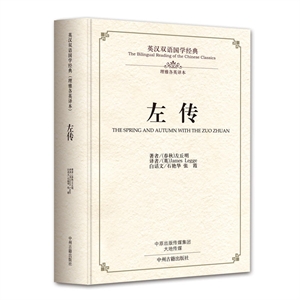
作者:王松江主编
页数:264
出版社:科学出版社
出版日期:2018
ISBN:9787030537089
电子书格式:pdf/epub/txt
内容简介
王松江主编的《项目规划(英汉对照国家双语教学试验示范课程教材)》为英文和中文双语教材,共分为三个部分:第一部分是结合GMS区域的目标导向项目规划系统流程概论;第二部分是ZOPP/OOPP理论在GMS区域发展规划与管理中的应用;第三部分是基于ZOPP/OOPP在GMS区域的项目规划理论及方法应用。三个部分全面、完整、系统地将目标导向项目规划的理论、方法、流程及应用阐述给教学的授课方和学生方,使“教”和“学”有机结合、相得益彰。本书章节之间逻辑关系强、研究思路清晰,可供项目管理相关专业的学生、教师等从业人员参考和阅读。
本书特色
本书为英文和中文双语教材,共分为三个部分:最部分是结合GMS区域的目标导向项目规划系统流程概论;第二部分是ZOPP/OOPP理论在GMS区域发展规划与管理中的应用;第三部分是基于ZOPP/OOPP在GMS区域的项目规划理论及方法应用。三个部分全面、完整、系统地将目标导向项目规划的理论、方法、流程及应用阐述给教学的授课方和学生方,使“教”和“学”有机结合、相得益彰。
目录
Part One Application of Objective Oriented Project Planning Theory (ZOPP/OOPP) On Case Study of GMS Region
A.Case Study on GMS Region
Chapter 1 Introduction
1.1 Background
1.2 Purpose of the Book
1.3 Theoretical Support
1.4 Research Scope and Limitation
Chapter 2 Case Study of GMS Region Based on OOPP
2.1 Problem Analysis
2.2 Strength Analysis
2.3 Objective Analysis
2.4 Project Plan
2.5 Prioritizing Projects
2.6 Project Implement Planning Based on P6
Chapter 3 Conclusions and Assessments
3.1 Conclusions
3.2 Assessments
Appendix Ⅰ Problem Tree
Appendix Ⅱ Objective Tree
Appendix Ⅲ Project Scoring Table for Prioritizing
B.Case Study on GNNR
Chapter 1 Introduction of GNNR
Chapter 2 Problems of GNNR
Chapter 3 Management Foundations/Potentials of GNNR
3.1 Support from Tier Governments
3.2 Established Management Framework
3.3 Well Established Mandates and Job-Description
3.4 Activities on Conservation and Rehabilitation
3.5 Good Cooperation with Forestry Bureaus and Stations
3.6 Planning Procedure
Chapter 4 Strengthening of Management Capability and Improvement of Management Measures
Chapter 5 Conclusion, Suggestions and GeneralAssessment
第一部分 基于GMS区域案例研究的目标导向项目规划理论的应用
A.越南老街省案例研究
第1章 概述
1.1 背景
1.2 选题目的和意义
1.3 理论依据
1.4 研究的范围和限制
第2章 越南老街省经济发展目标导向项目规划
2.1 问题分析
2.2 优势分析
2.3 目标分析
2.4 项目规划
2.5 项目选优排序分析
2.6 基于P6的项目实施规划
第3章 结论及评价
3.1 结论
3.2 建议
附录Ⅰ 问题树
附录Ⅱ 目标树
附录Ⅲ 项目选优排序打分表
B.中国云南省高黎贡山自然保护区案例
第1章 高黎贡山自然保护区介绍
第2章 高黎贡山自然保护区面临的问题
第3章 高黎贡山自然保护区管理基础及优势
3.1 各级政府的支持
3.2 确立的管理框架
3.3 既定的任务和工作描述
3.4 保护区的森林保护和恢复措施
3.5 同林业局和林业站的良好合作
3.6 计划程序
第4章 加强管理能力与完善管理方法
第5章 结论、建议及总体评价
Part Two Application of ZOPP/OOPP Theory in District Development Planning and Management
Chapter 1 Ecological Prof’de Analysis of GMS Region
Chapter 2 Farming Systems Analysis
Chapter 3 Analysis of Accessibility
Chapter 4 Settlement Analysis
Chapter 5 Institutional Analysis
Chapter 6 Planning Workshop Ⅰ: Analysis
Chapter 7 Planning Workshop Ⅱ: Planning Phase
7.1 introduction
7.2 Spatial Dimension of Policy Framework
7.3 Alternative Development Program Concepts
7.4 Formulation of District Development Program
7.5 Conclusions and Recommendations
7.6 Monitoring and Evaluation
第二部分 ZOPP/OOPP理论在GMS区域发展规划与管理中的应用
第1章 GMS区域的生态概况分析
第2章 农业系统分析
第3章 可行性分析
第4章 定位点分析
第5章 机构分析
第6章 规划研讨会Ⅰ:分析
第7章 规划研讨会Ⅱ:计划阶段
7.1 引言
7.2 政策框架的空间维度
7.3 替代发展计划的概念
7.4 制订区域发展计划
7.5 结论和建议
7.6 监测与评估
Part Three Application of ZOPP/OOPP Theory Technology on District Development Planning and Management
Chapter 1 Work Preparation for Workshop Ⅱ
1.1 Interest Group Analysis
1.2 Concept of Participatory District Development Planning
1.3 Operational Aspects
Chapter 2 Environment Impact Assessment of High Dam Project
2.1 Introduction
2.2 Objectives
2.3 Methodology
2.4 Results and Conclusions
Chapter 3 Scenario Writing/Population Projection
Chapter 4 Agriculture Planning
Chapter 5 Location Evaluation for Upgrading Rural Center
Chapter 6 Policy Statement for the GMS Region
第三部分 基于ZOPP/OOPP在GMS区域的项目规划理论及其方法应用
第1章 研讨会Ⅱ的工作准备
1.1 利益相关者分析
1.2 参与式区域发展规划的概念
1.3 操作方面
第2章 高坝项目环境影响评估
2.1 引言
2.2 目的
2.3 方法
2.4 结果与结论
第3章 场景描述/人口预测
第4章 农业规划
第5章 农村中心升级的位置评估
第6章 GMS区域的政策声明
A.Case Study on GMS Region
Chapter 1 Introduction
1.1 Background
1.2 Purpose of the Book
1.3 Theoretical Support
1.4 Research Scope and Limitation
Chapter 2 Case Study of GMS Region Based on OOPP
2.1 Problem Analysis
2.2 Strength Analysis
2.3 Objective Analysis
2.4 Project Plan
2.5 Prioritizing Projects
2.6 Project Implement Planning Based on P6
Chapter 3 Conclusions and Assessments
3.1 Conclusions
3.2 Assessments
Appendix Ⅰ Problem Tree
Appendix Ⅱ Objective Tree
Appendix Ⅲ Project Scoring Table for Prioritizing
B.Case Study on GNNR
Chapter 1 Introduction of GNNR
Chapter 2 Problems of GNNR
Chapter 3 Management Foundations/Potentials of GNNR
3.1 Support from Tier Governments
3.2 Established Management Framework
3.3 Well Established Mandates and Job-Description
3.4 Activities on Conservation and Rehabilitation
3.5 Good Cooperation with Forestry Bureaus and Stations
3.6 Planning Procedure
Chapter 4 Strengthening of Management Capability and Improvement of Management Measures
Chapter 5 Conclusion, Suggestions and GeneralAssessment
第一部分 基于GMS区域案例研究的目标导向项目规划理论的应用
A.越南老街省案例研究
第1章 概述
1.1 背景
1.2 选题目的和意义
1.3 理论依据
1.4 研究的范围和限制
第2章 越南老街省经济发展目标导向项目规划
2.1 问题分析
2.2 优势分析
2.3 目标分析
2.4 项目规划
2.5 项目选优排序分析
2.6 基于P6的项目实施规划
第3章 结论及评价
3.1 结论
3.2 建议
附录Ⅰ 问题树
附录Ⅱ 目标树
附录Ⅲ 项目选优排序打分表
B.中国云南省高黎贡山自然保护区案例
第1章 高黎贡山自然保护区介绍
第2章 高黎贡山自然保护区面临的问题
第3章 高黎贡山自然保护区管理基础及优势
3.1 各级政府的支持
3.2 确立的管理框架
3.3 既定的任务和工作描述
3.4 保护区的森林保护和恢复措施
3.5 同林业局和林业站的良好合作
3.6 计划程序
第4章 加强管理能力与完善管理方法
第5章 结论、建议及总体评价
Part Two Application of ZOPP/OOPP Theory in District Development Planning and Management
Chapter 1 Ecological Prof’de Analysis of GMS Region
Chapter 2 Farming Systems Analysis
Chapter 3 Analysis of Accessibility
Chapter 4 Settlement Analysis
Chapter 5 Institutional Analysis
Chapter 6 Planning Workshop Ⅰ: Analysis
Chapter 7 Planning Workshop Ⅱ: Planning Phase
7.1 introduction
7.2 Spatial Dimension of Policy Framework
7.3 Alternative Development Program Concepts
7.4 Formulation of District Development Program
7.5 Conclusions and Recommendations
7.6 Monitoring and Evaluation
第二部分 ZOPP/OOPP理论在GMS区域发展规划与管理中的应用
第1章 GMS区域的生态概况分析
第2章 农业系统分析
第3章 可行性分析
第4章 定位点分析
第5章 机构分析
第6章 规划研讨会Ⅰ:分析
第7章 规划研讨会Ⅱ:计划阶段
7.1 引言
7.2 政策框架的空间维度
7.3 替代发展计划的概念
7.4 制订区域发展计划
7.5 结论和建议
7.6 监测与评估
Part Three Application of ZOPP/OOPP Theory Technology on District Development Planning and Management
Chapter 1 Work Preparation for Workshop Ⅱ
1.1 Interest Group Analysis
1.2 Concept of Participatory District Development Planning
1.3 Operational Aspects
Chapter 2 Environment Impact Assessment of High Dam Project
2.1 Introduction
2.2 Objectives
2.3 Methodology
2.4 Results and Conclusions
Chapter 3 Scenario Writing/Population Projection
Chapter 4 Agriculture Planning
Chapter 5 Location Evaluation for Upgrading Rural Center
Chapter 6 Policy Statement for the GMS Region
第三部分 基于ZOPP/OOPP在GMS区域的项目规划理论及其方法应用
第1章 研讨会Ⅱ的工作准备
1.1 利益相关者分析
1.2 参与式区域发展规划的概念
1.3 操作方面
第2章 高坝项目环境影响评估
2.1 引言
2.2 目的
2.3 方法
2.4 结果与结论
第3章 场景描述/人口预测
第4章 农业规划
第5章 农村中心升级的位置评估
第6章 GMS区域的政策声明













